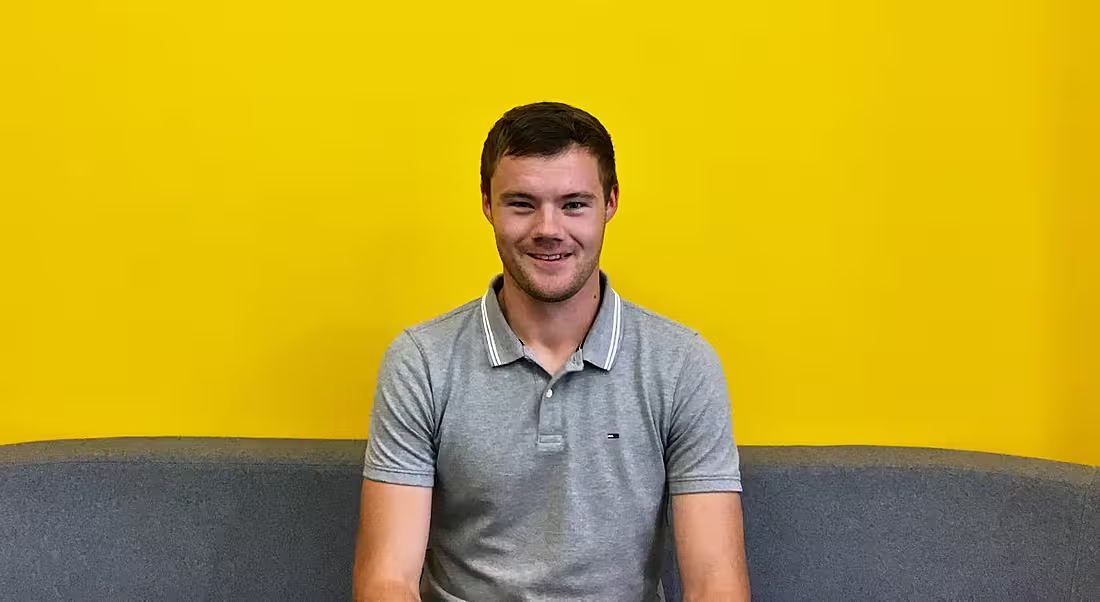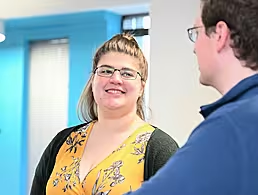The ability to work on an Agile team is becoming an essential skill for any graduate. But why is it so valuable?
When you enter a graduate scheme, you’ll probably be hoping to flex the skills you learned in your degree. You’ll apply those skills in a workplace setting and maybe learn a few more on top of that.
Tech graduates might be used to a particular focus from college, and this was the case with Liberty IT’s Andrew Baird, who took part in the software company’s graduate programme.
His previous experience was as a back-end developer, but he discovered the value of working on an Agile team in Liberty IT, which helped him take on new challenges and learn new tools. Here, Baird talks about expectations versus reality and finding his feet in the firm.
What did you study in college?
Bachelor of engineering in computer science at Queen’s University Belfast.
With this programme, are you now working in your desired industry?
I have always enjoyed software development and, before joining Liberty IT, the majority of my experience had been as a back-end developer working with object-oriented languages and relational databases.
Working at Liberty IT has exposed me to new things such as full-stack development and DevOps. I’ve really enjoyed learning and gaining experience in these practices.
What drew you to Liberty IT when you were seeking work as a graduate?
I had always heard good things about Liberty IT, particularly around its graduate roles and personal and career development. I was also attracted by Liberty IT’s use of current tech stacks, development practices and the opportunity to work on applications used by large number of users.
What expectations did you have before you began the programme?
My previous experience was as a back-end developer, so being placed in a team where I could apply these skills would have been ideal. I wasn’t sure what project I would be placed on or how much of a learning curve would be required before I’d be able to contribute to development.
What duties and responsibilities were you given initially?
Initially, my duties involved gaining the skills I would need to work effectively. I had been placed into a team working on a web application. I was excited about this as I would be able to apply existing knowledge while at the same time getting the opportunity to learn new things.
The team made it easy to get settled in and provided a high-level overview of the application as well as including me in all team meetings and code reviews to help me gain an understanding of the codebase, team practices and processes.
Did the scope of your work change as the programme progressed?
As my knowledge of the codebase and technologies progressed, I was able to take on more challenging tasks and deliver pieces of usable functionality. At the end of each sprint, I was able to demo and explain the features I had delivered to the stakeholders involved in the project.
Can you describe a typical day in your role?
Typically, my day begins by replying to emails before working on the tasks I have been assigned in the current sprint. This could range from adding new UI features to bug fixes, testing or reading up on documentation. I find the variation in tasks good as it helps you build knowledge across all areas of the project and gain a better understanding of how everything ties together.
Due to some of our team members being based in the US, most of my meetings tend to be in the afternoon to accommodate time zone differences. Our team follows the Agile practice so we have a daily stand-up with all team members present, where we each provide a progress update and any impediments we have.
How do your responsibilities compare to more experienced employees’?
Your responsibilities will vary slightly depending on your experience. However, there is a core set of values shared by all developers, such as making sure you are delivering clean, secure and testable code.
As a graduate employee, there is a stronger focus on learning and gaining the skills (technical and professional) to allow you to work efficiently and effectively in your role. More experienced employees help to facilitate this through knowledge sharing, providing feedback and mentoring.
Do you feel more prepared for working life after completing this programme?
Definitely. I’ve been able to broaden my skillset and knowledge through working with new tools and technologies as well as working alongside and receiving feedback from more experienced developers. This has been invaluable and has helped to enforce best practices and standards in my code.
Working as part of an Agile team has also been a great learning experience, particularly as it is a widely adopted practice across development teams.
Why should someone apply to the graduate programme at this company?
Liberty IT provides a great platform for graduates to learn and grow within the company. There is a strong focus on learning and training initiatives such as knowledge transfer amongst employees, gaining certification in tools/technologies and partaking in conferences, tech talks or hackathons.
I’ve really enjoyed my time as a graduate at Liberty IT and have been fortunate to work with a bunch of great people on challenging projects. The work-life balance and culture is also great, with regular social and company events organised throughout the year.
I’d advise any future graduates to consider a career with Liberty IT.




